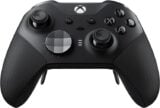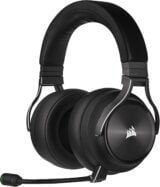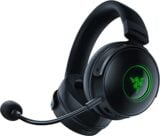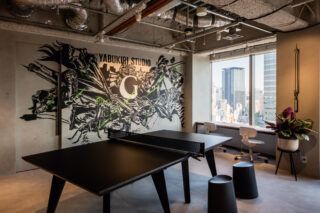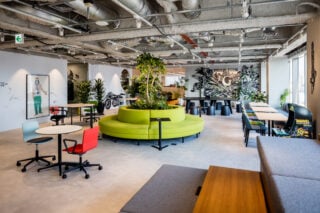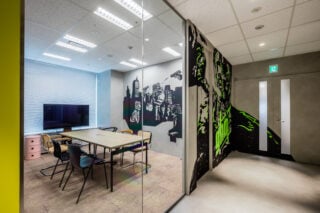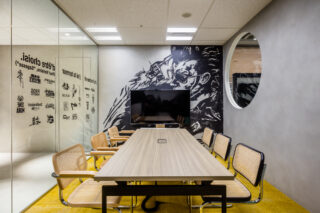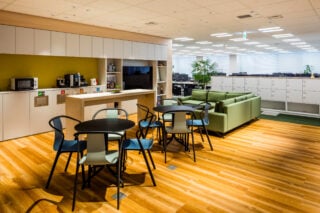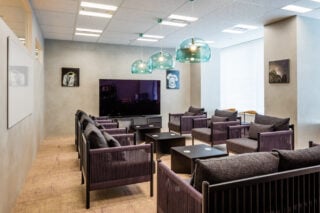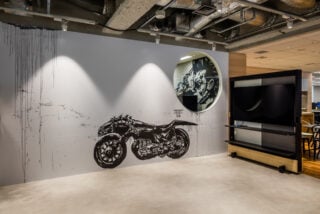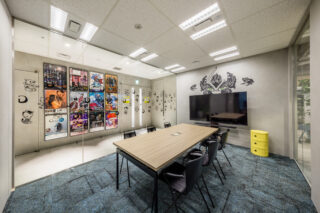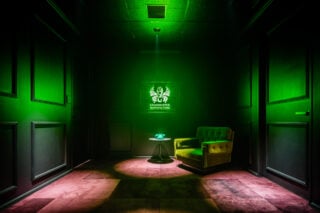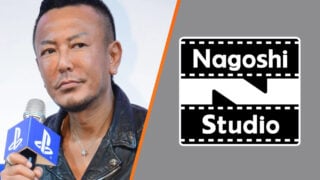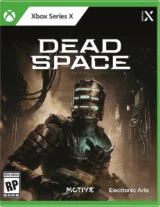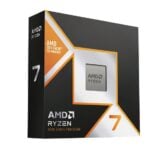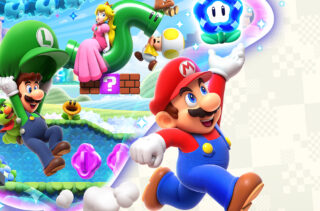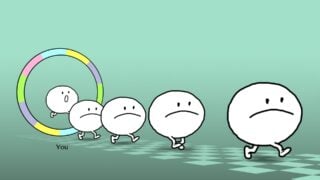Suda and Nagoshi: NetEase has given us freedom
How the mobile games giant is allowing Japanese console game legends to get creative again
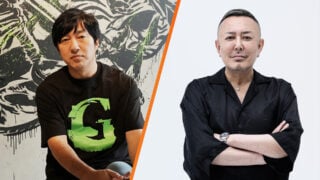
Words by Andy Robinson and Chris Scullion.
“As you can see… it’s a lot bigger than before,” Goichi ‘Suda 51’ Suda tells us during our recent visit to Grasshopper Manufacture’s new headquarters, recently relocated to a popular commercial district of Tokyo. “The studio used to be full of dope fiends, but now everybody is completely drug-free… I’m just kidding, obviously.”
Grasshopper, fresh off the release of the third (and apparently, final) No More Heroes game, is currently building a new title and various other projects, with a staff of around 50 people. Placed against the comparatively chaotic space it previously occupied in nearby Chiyoda, the company’s new studio is slick and pristine, not dissimilar to a major triple-A studio in the West.
This was made possible partly by the company’s sale to NetEase in 2021. Previously known for its popular PC MMOs and mobile games, the Chinese technology giant has embarked on a major expansion beyond its home borders. It acquired Quantic Dream, has invested in GTA lead Leslie Benzies’ Build a Rocket Boy, and has opened countless studios in Europe, North America and Asia helmed by renowned creators.
In Japan, it’s not hyperbolic to say NetEase already has one of the most exciting rosters of game developers of any publisher in the region. In addition to Grasshopper, it’s opened studios with seasoned Capcom developers Ryosuke Yoshida, Jean-Christophe Moine Maeda and Takeshi Yamazaki.
Hiroyuki Kobayashi, a 27-year Capcom veteran who was a programmer on the first two Resident Evil games and went on to produce Resident Evil 4, opened his own NetEase-backed company last year.
And this year, NetEase set up Studio Flare, with former Marvelous board member Toshinori Aoki and Blazblue series producer Toshimichi Mori taking the reins, then in May it launched Pincool, a new studio led by Dragon Quest 8 and 9 producer Ryutaro Ichimura.
Given its preference for startups and the studio’s own 25-year history, the NetEase acquisition of Grasshoppper was one of the most headline-grabbing moves so far. Grasshopper’s games have always been somewhat offbeat and eccentric, and while this has undoubtedly defined the studio’s personality, it also means each game is a financial roll of the dice.
In the past, Grasshopper has often turned to other publishers for funding support, which can sometimes mean a compromise in content – Suda’s frustration in dealing with EA when developing Shadows of the Damned is well documented , for example.
NetEase's new studio roster
NetEase Montreal (Watch Dogs creator Jonathan Morin)
Quantic Dream (Heavy Rain / Detroit)
Nagoshi Studio (Toshihiro Nagoshi)
Sakura Studio / Ouka Studio (Devil May Cry 3 & 4 / Resident Evil 5 & 6 co-designer Jean-Christophe Moine Maeda)
Pincool (Dragon Quest 8 & 9 producer Ryutaro Ichimura)
Studio Flare (BlazBlue producer Toshimichi Mori)
GPTRACK50 (Resident Evil 4 producer Hiroyuki Kobayashi)
Jackalyptic Games (City of Heroes / DC Universe Online head Jack Emmert)
T-Minus Zero Entertainment (Star Wars: The Old Republic producer Rich Vogel)
Bad Brain Games (Watch Dogs: Legion / Driver: San Francisco producer Sean Crook)
Jar of Sparks (Halo Infinite campaign producer Greg Stone)
Anchor Point Studios (Control lead designer Paul Ehreth)
Spliced (Grand Theft Auto, Call of Duty alumni)
Suda explains to us that the financial security provided by the NetEase acquisition makes such creative differences less likely, and has improved the atmosphere in the new office as a result.
“Thanks to the support and backup we now get from NetEase, not only do we have a bigger studio and more people, the environment itself has become much easier to work in, it’s become a lot easier to express my creativity and put more energy into being creative in general,” he tells us.
“We didn’t just get really big all of a sudden, we’ve brought a lot of new people in over time. We’ve brought in a lot of newer and younger staff members, and each of these staff members joined just at the right time, right when we needed them. So I feel that it’s a much healthier environment, and one that’s much more conducive to creativity than it used to be. We’ve also made it so it’s a lot easier to communicate among staff members – between the staff members themselves, and between staff members and myself too.”
One of the benefits of being owned by a company with extreme levels of wealth that is still trying to establish itself in the console space is that, according to everyone we’ve spoken to in Japan and Europe, NetEase gives its studios the freedom to do their own thing. The general agreement appears to be that since NetEase added these studios to its portfolio because of the capabilities of their creators, it stands to reason that these creators should be allowed to get on with it.
“I mean, we do have a schedule and a budget and everything, but it’s not like anyone’s saying, ‘OK, the game has to be out on this day’,” Suda explains. “There’s nobody [at NetEase] who thinks that if you get a game out as soon as possible, it’s going to be good – they understand that’s not how it works. They give top priority to creativity and quality, so it’s great that we’re able to have the freedom of time and schedule to really put the work into the games that we need to put into them, and they’re really understanding about that.”
Suda also feels that its acquisition was also something of a learning process for NetEase, which has traditionally tended to focus on free-to-play mobile titles instead of console games.
“Not only do we have a bigger studio and more people, the environment itself has become much easier to work in, it’s become a lot easier to express my creativity and put more energy into being creative in general.”
“They let us work on games the way we want to work on them, and make the games we want to make,” he tells us. “One thing I’ve felt both in terms of working remotely and finally being able to meet them face-to-face, is that I feel they’re a company that’s really interested and eager to learn new things, from not just us but other studios as well.
“They’re really interested in how we do things, they ask me stuff like ‘hey, could you give us some ideas and some pointers on how you create games, how to make better games’. So it’s not only the freedom they allow us to work with, but also the passion and energy you can tell they put into their work, and help us put into our work as well. It’s something that’s been really impressive.”
Twenty minutes away in the trendier neighbourhood of Ebisu, we find the offices of arguably the most high-profile recruit yet of NetEase’s Japanese push. In January 2022, it was announced that Sega’s chief creative officer, Toshihiro Nagoshi, was forming a new development studio.
As the creator of the hugely successful Like a Dragon (formerly known as Yakuza) series, as well as classic games such as Super Monkey Ball, F-Zero GX and Binary Domain under his belt, Nagoshi would likely have had a line of suitors willing to back his startup studio. However, he tells us that NetEase’s pitch won him over due to its desire to push into the console action game scene where he’s built his reputation.

“The general environment [in this country] means it’s hard to try new things in Japan, but NetEase is very ambitious and wants to expand its business by succeeding worldwide and including the console game category, which aligns with our ambition,” Nagoshi tells us.
“So when we started our conversations, we aligned our goals and the destination we were aiming towards. We were pretty much aligned in the first place, and later on, when we actually had meetings with each other, we just made sure we were heading towards this goal we had set before. So there hasn’t necessarily been anything that’s surprising, we both just thought about our destination in the first place and are just heading in that direction.”
Nagoshi shares Suda’s opinion that NetEase appears willing to learn from the talent it’s acquired and pick their brains on how to best develop for the console market, but he also notes that this learning process goes both ways.
“It’s true that the games we create and the genres we favour are quite different, but some of the skills and technologies behind these games are alike,” he explains. “So despite the differences in genre, we do have frequent high-level exchanges and collaborations in terms of resources, technology and even people. We do keep these ties and have been achieving some results through this collaboration, so the genre difference isn’t a problem in this case.”
He added: “I think it’s more like two-way traffic, where we learn from each other about the same amount. From NetEase’s side, they don’t have that much console game development experience compared to us, so they would learn from us when it comes to making console games.
“The general environment [in this country] means it’s hard to try new things in Japan, but NetEase is very ambitious and wants to expand its business by succeeding worldwide and including the console game category, which aligns with our ambition.”
“For us, we don’t have much online game development experience, and NetEase especially has expertise when it comes to making online games at a faster speed and managing their workflow well, so this is an aspect of work where we’ve learned a lot from them.”
Nagoshi Studio is currently working on its debut game, which it’s suggested won’t stray too far from the formula that made the Yakuza games such a success: drama, violence and humour.
One of the benefits of being one of a number of companies owned by a larger body is the possibility of resource-sharing. While Nagoshi concedes that his current 50-person team may be a little small for the Yakuza-type game he’s known for these days, he stresses that not only does the team plan to continue growing, but it also makes use of NetEase’s contacts for parts of development.
“Even with these new people joining the team, we’re still considered a small team compared to other studios,” Nagoshi tells us. “But NetEase does help us outsource aspects, so at our studio, the members will mostly focus on the core essence of the game, and when it comes to mass production we can outsource part of the production to other offices.”
Of course, at this relatively early stage in NetEase’s console game journey, there isn’t much to see yet in terms of actual finished products, since everything is still very much in development.

However, with Grasshopper working on its latest top-secret title, Nagoshi Studio preparing to announce its debut game, Quantic Dream beavering away on Star Wars Eclipse (and soon launching the first game in its new indie label) and Build a Rocket Boy planning big things with Everywhere, NetEase will very soon be in a position where it has some tangible, quality products to point to as an indicator of its intent.
It at least appears that the NetEase-owned studios we’ve visited – both in Japan and elsewhere – are happy with the situation and the opportunities it allows them. The proof will always be in the playing, but a happy studio increases the likelihood that its enthusiasm will shine through in the finished game.
“From the perspective of development, I think we are professional in console games, while NetEase has very popular mobile games… So both of us have some technologies that the other lacks,” Nagoshi said. “We can learn something from each other. Meanwhile, we will keep our existing strengths as well. In terms of technologies and skills, by absorbing and learning, we can make ourselves better. That’s the relationship I want to develop between us.”

